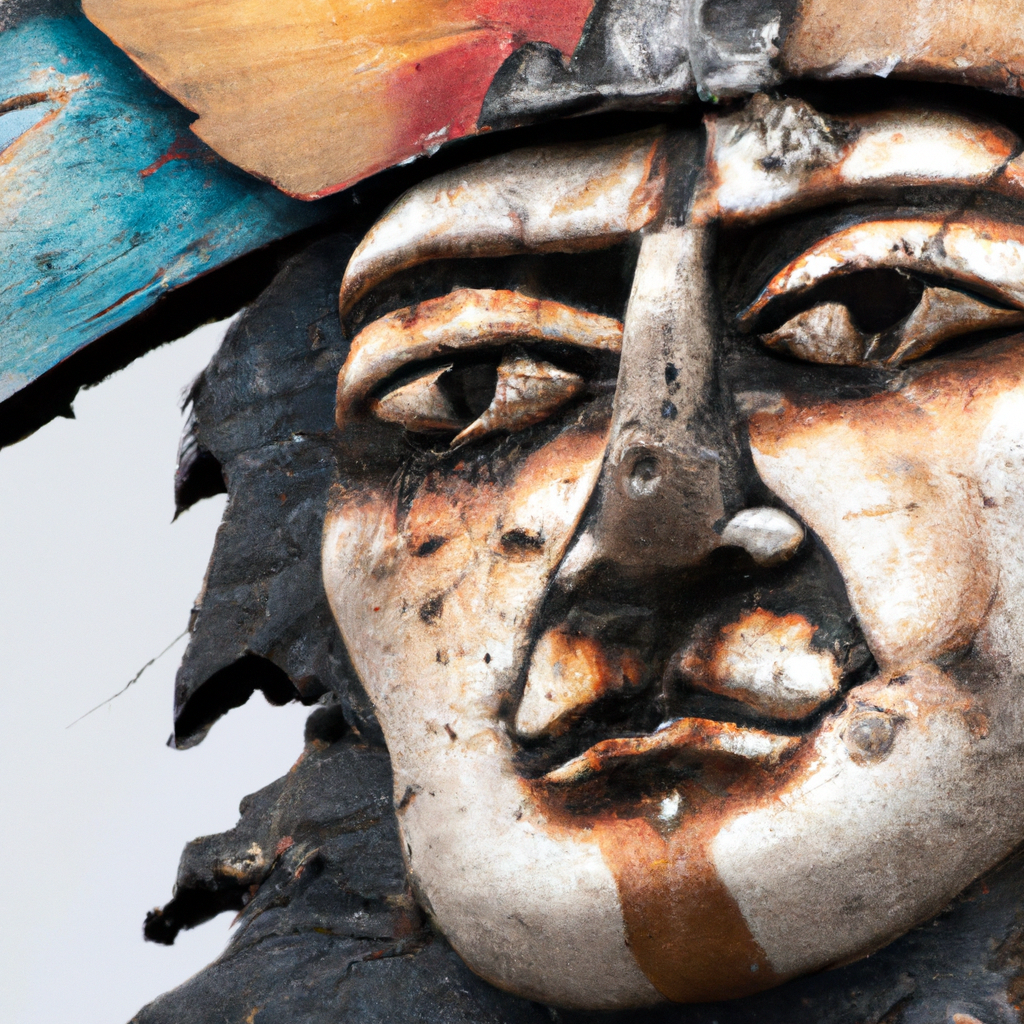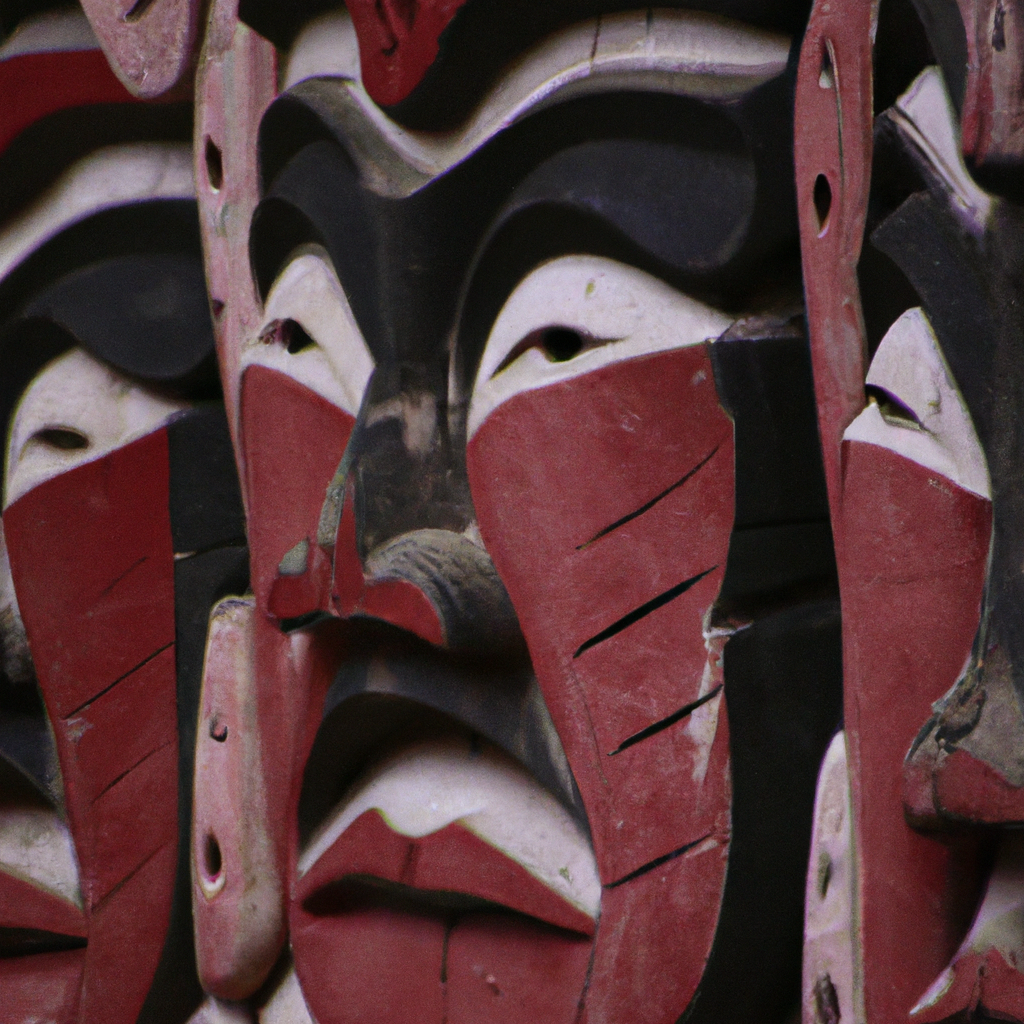Throughout history, tradition and ritual have always been integral components of human life. Native American communities have a long-held belief that special guardians had the ability to heal mental, physical, and spiritual ailments through the practice of medicine. These spiritual gatekeepers were the medicine men and healers — sometimes referred to as shamans, herbalists, or medicine people — and they served as key figures in Native American societies. In this article, we explore the ancient practice of medicine men and healers.
1) Honoring the Wisdom of Medicine Men and Healers
Ever since the dawn of history, medicine men and healers have been an essential part of the traditional way of life for many communities. From ancient shamans to modern-day practitioners, these healers are revered for their specialized knowledge of the body and spirit.
Medicine men and healers are often sought out for knowledge of herbal remedies, natural medicines, and treatments. They employ an array of healing methods, such as divination, healing rituals, and other forms of spiritual and physical healing. Their ability to heal both body and spirit is seen as one of their most important contributions.
We must pay tribute to these healers by recognizing and honoring their art of healing. They have an in-depth knowledge of the mental and physical body, which can facilitate healing in ways that modern medicine cannot. Their holistic approach to healing is a vital part of the healing process.
It is important to note that traditional healing practices must be respected. Respect is shown by researching the culture that practices the healing methods as well as respectful dialogue. We must also note that traditional medicine must be carefully adjusted for modern times. Traditional medicine may need to be adapted so it can be used in modern-day settings.
- Learn about healing methods used in the community. Take the time to learn about the different healing methods and practice used in the community.
- Be respectful. When engaging in dialogue about traditional healing methods, respect their knowledge and beliefs.
- Understand the need for integration. Understand that today’s medicine must be adapted to work in modern-day settings.
- Give honor where it’s due. Show your respect for the medicine man or healer by giving them special recognition for their wisdom.
It is important to remember, that without medicine men and healers, many would struggle to find the healing they need. Let us honor their wisdom and give them the respect they deserve.

2) Protecting Indigenous Wellness through Tradition
Protecting Indigenous Wellness through Tradition
Traditional practices are integral to Indigenous wellness and wellbeing. In a world where the effects of colonization, racism, and systemic oppression have heavily impacted Indigenous communities in myriad ways, learning and engaging in traditional practices can help protect and nurture Indigenous wellness.
Understanding well-documented traditional practices is essential to holistic wellness and ensures that Indigenous Peoples continue to have access to traditional knowledge, actions, and teachings. Utilizing practices that have been passed down through the generations is a powerful way to represent and honor the ways of our ancestors and ensure our own personal connectedness to these past generations.
Participating in ceremonies can also bring back a sense of belonging that has been lost in settler colonial contexts. Through cultural ceremonies, people can strengthen their own spiritual and physical health, as well as connect to the land – a concept that is particularly important for Indigenous Peoples who were displaced from the traditional lands of their ancestors. The strengthening of cultural identity through ceremonies and teachings can reduce or eliminate feelings of alienation, trauma, and despair.
Exercising traditional medicinal practices can also be a beneficial way of restoring Indigenous wellbeing. By incorporating traditional healing elements such as plants, herbs, and teas passed down through generations, people can foster a sense of community and shared identity while restoring physical and mental health.
Finally, embracing traditional storytelling and art is an important way that Indigenous Peoples keep their culture and heritage alive and well. From painted hides to beadwork to photography and films, traditional creative outlets provide important teachings and perspectives that bring the past into the present. By telling our stories, we have the opportunity to heal and reimagine our future.
3) Empowering Native Communities with Spiritual Medicine
Native communities around the world have been searching for empowerment and respectful answers for centuries. Spiritual medicine is a solution that has been around for ages, but has not always been taken seriously. Today Native communities are beginning to see the potential of herbs, natural remedies and ancient teachings as a way of healing and connecting to their ancestors.
Herbs and Natural Remedies
Herbs and natural remedies have been used for healing and empowering for centuries and have been respected as a practical solution to many health and spiritual problems. Native communities are now turning to natural remedies for a variety of sicknesses, with some of the most ancient teachings being the most effective. Herbs such as sage, cedar and lavender have been used to treat physical ailments and help balance spiritual energy.
Drying and Processing Herbs
Once the herbs are harvested, they need to be dried and processed so they can be used in medicinal treatments. Traditional methods of harvesting, drying and storing native plants often include burning them as a method of cleansing. This is an important step in preparing the herbs for use in treatment and in ensuring that the full potential of each herb is unlocked.
Ancient Teachings
At the heart of Native spiritual medicine is the traditional teachings of elders and ancestors. It’s important for people to recognize the wisdom of the Elders and maintain the importance of their teachings. Elders share valuable stories, songs and knowledge about how to connect to and honor the spirit world.
Honoring the Medicine Man
The Medicine Man is an important part of the community, as he is the one who holds the spiritual knowledge and provides the healing and empowering powers of spiritual medicine. In Native culture, the Medicine Man is seen as a leader, teacher and healer, bringing an understanding of the spiritual world to the community.
Rituals and Ceremonies
Rituals and ceremonies are seen as a way to honor elders and ancestors and to ask the spirit world for guidance. Ceremonies may include singing, dancing and drumming and are used to connect with the spirit world and ask for help in times of need.
Through herbs, natural remedies, ancient teachings and ceremonies, Native communities can reconnect with their ancestral roots and long forgotten wisdom. It’s an empowering way of healing and understanding the world around them, and an important step in protecting the future of the Native culture.
4) Reclaiming the Role of the Medicine Man and Healer
Shifting Views on Healing
Though in some cultures medicine men and healers have always been essential to the wellbeing of the community, the rise of Western medicine has pushed these historical roles aside. Until recently, we have had limited access to their insights and their powers of healing. Now, there is an opportunity to reclaim the knowledge of the ages and embrace the power of these traditional healing practices.
From a holistic, integrative medical perspective, a key part of recovering from illness is understanding mental, emotional, and physical healing. Instead of treating only the physical symptom, many are now turning to the knowledge of medicine men and healers to help treat the whole person.
- Chronic ailments
- Emotional and mental disturbances
- Lifestyle management
- Spiritual advice and practices
From offering advice and herbs to performing rituals, a medicine man or healer can help deliver understanding and push patients to better health and balance. Seeking out a medicine man or healer can help a person identify the root of their ailment and create a lasting sense of wellbeing.
Reclaiming the role of the medicine man and healer gives us access to a healing system that has been around for centuries. The potential for a lasting and effective holistic experience is high, and the traditional healers and medicine men are ready to help.
The profound tradition of native medicine men and healers has existed since time immemorial, and continues to be a respected part of many Native American communities today. Whether rooted in ancient spiritual beliefs or direct ancestral knowledge, these spiritual guardians continue to guide and protect their communities with the power of their healing arts. With their stories and teachings, we can all learn to better honor and nurture the connection between our spiritual and physical worlds.
